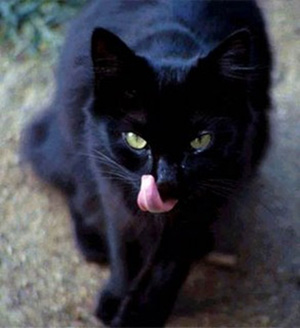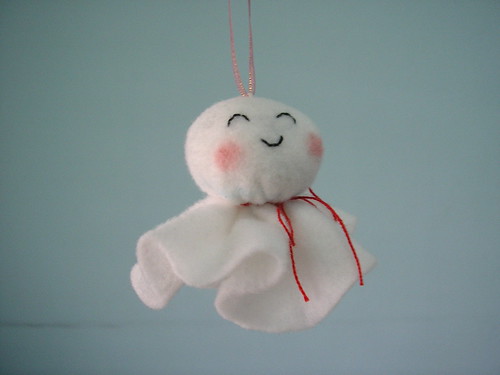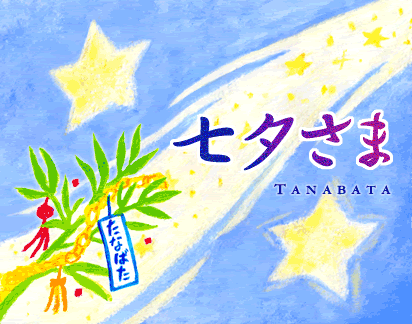In Japan, as elsewhere in the world are deeply rooted superstitions among its population. Although the Japanese insist on stating that they do not believe in superstitions, the truth is that most of them take them into account.
think
admit to say that all these popular legends affect their lives, which are unable to accept. The most famous Japanese superstitions are:
* Blood In Japan attaches great importance to the blood group of each one. They believe that when meeting someone must take into account the type A are methodical, original group B, the AB-type sensitive and type 0 seek long-term relationships and are balanced. Of course this statement has no scientific basis, but it is very common among Japanese youth are asked what blood group they belong to the time to start a relationship.
not forget that blood is a subject dealing with religions, particularly Shinto, for example, prohibits women from going to temples during menstruation and consider them unclean.
* Death
There are many superstitions in Japan related death. For example: the passage of the funeral procession of a place their two thumbs down for death to pass over and does not focus on them when taking a photography andhas are 3 people that is believed to in the center will be the first to die, the futon should never be placed with their feet to the south and the pillow facing north because it is the position where people are buried according to religion Buddhist or evening usually cover the mirrors in the bedroom with a large handkerchief to prevent any spirit to pass through and taking over their own.
"The mirrors shall begin to do: S
* High
Sumo wrestlers scatter salt on the sandy site where they will fight to avoid bad luck.
* Lucky Japanese often buy a few sticks of rolled paper in the temples that will tell what will be their fate (Omikuji). You will have bad luck if you appear in the dreams of another and also if you break a wooden sandal.
On 4 and 14 of the month is considered unlucky, while the day 28 brings good luck.
* Numbers Numbers 4 and 9 are considered unlucky in Japan. The number 4 is pronounced almost like the word "death", and the number 9 as the word "pain."
Therefore, in many buildings such as hospitals do not exist on levels 4 and 9. Recently did a study that claimed that second-hand flats located in these plants and are put on sale took longer to sell and had a lower price, which confirms that Although the Japanese refuse taxtativamente believe in superstitions, they significantly affect their lives.
For example, shi means death, and is pronounced like the 4, so to remedy it is pronounced 4 and yon. In some hospitals there is no room number 42 (shi-ni) as this is a number of very bad omen, its meaning may be the words "prepare to die." Likewise, some maternity hospitals have no room 43 (shi-zan) and is pronounced like "stillbirth".
The number 8,000,000 (eight million) is on reading, most common, of happyakuman, with the literal meaning of eight million. With reading kun, yaoyorozu, simply means a very large number, as in English "billion" or "an infinity", although originally it was also the meaning of eight million. It appears mostly in phrases, for example, in the Shinto belief of "yaoyorozu no kami (eight million gods). Not to say that there are eight million gods, but rather that there are a number of gods, an infinity of them.
Many Japanese families named their children by numbers. The most common are Ichirō classic masculine names, Jiro, Saburo, Shire and Gorō for, respectively, the first son, second, third, fourth and fifth. There are also many Japanese whose name ends in any of the aforementioned, as Shinichirō, Eiichiro or Ryuzaburo. Another example is
Isoroku Yamamoto, Japanese naval commander of World War II: Isoroku is written and means 56 because that was the age of his father when he was born.
addition, the Japanese islands of Kyushu (nine provinces) and Shikoku (four countries) have their origin in the names of numbers. The word yakuza (Japanese mafia) do not know the origin but is widely believed that it comes from and (8), ku (9), za (3), since 8, 9 and 3, or 20 points, is the worst hand of playing cards Hanafuda.
*
Horoscope

If you ask, "Nani doshi desuka?" Means: "What is your horoscope?". It is a common phrase when you meet someone in Japan. The answer depends on the year you were born, as they follow the horoscope Chinese fixed one animal for each year in cycles of 12 years.
* Sticks

never should stick chopsticks into the bowl of rice because it is a call to death
* Teeth
If you drop a tooth should throw your tooth down to the roof home. If, however, a tooth is knocked up and you must climb onto the roof of your house and throw it from there. If you do so, you will attract bad luck.
* Black Cats
 As in the West, Japan also There is a superstition of black cats, but as the difference should be noted that if you cross a black cat will bring bad luck, but only if it makes you behind They do
As in the West, Japan also There is a superstition of black cats, but as the difference should be noted that if you cross a black cat will bring bad luck, but only if it makes you behind They do 



